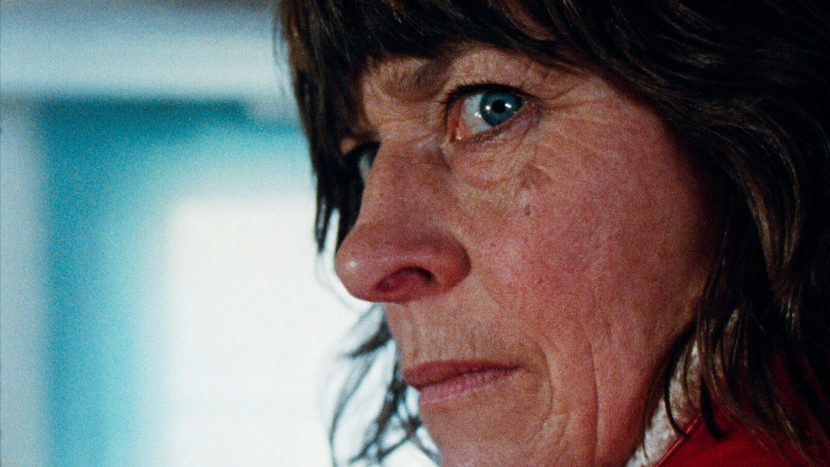Vassilis Kroustallis reviews the UK folk horror film by Mark Jenkin, Enys Men.
'Enys Men' means 'The Island of Stone' in Cornish, and stone it is in the sophomore feature by the Cornish director Mark Jenkin (BAFTA Award for an Outstanding Debut for his first feature film, 'The Bait').
A volunteer researcher (Mary Woodvine, in a role that requires her to say as little and infers so much) lives and works on a deserted Cornish island (in 1973), observing the local flora -and reading a survival manual in her spare time. She is self-sufficient, unchanging, and meticulous in her work. The film will go into pains to describe every little routine of her daily life -that is before fantasy and hallucinations start to mix up with reality.
The centerpiece is an accident and a sea tragedy that took place on the island. Details are heard via the radio. It is as if the tragedy (that happened or to happen?) fuels the energy of 'everything goes as it should' in the main character, who patiently pencils in 'No change', even when change starts entering her own reality.
Shot impressively in grainy 16mm (and some shots make it look like a natural documentary, which it isn't), Nicholas Roeg's 'Death In Venice' (1971) deja-vu creeps in, especially with the red overcoat the main characters wears as if preparing herself to be drowned. There is the church, a choir, and a priest in Mark Jenkin's film, but here they don't work as outside omens to be conquered. This is only part of the substance and the content the main character carries with her baggage, and perhaps this book she's reading might not be the proper reading pastime.
'Enys Men' is definitely a slow-burn film, and the narrative signs of folk horror start from the mundane and the almost enjoyable or congenial to more disturbing, and somatic-related. It also connects the natural and the bodily in a disharmony that can somehow alert of human lichens destroying our floral and non-floral habitat. For all its ingenuity in the sound design and editing, it will really leave an empty hole in the character's center. Whatever her hallucinations might turn out to be, they are most puzzling and incoherent to herself first. As if the film wants to play with visual noise, no related portrait of one or the other disorder arises. Unclassifiable yes, but unidentifiable as well -and really welcome here.
Mary Woodvine makes the most of this, imbuing with different expressions in every single scene, whereas the shots offer a variety that makes the whole result inescapable to watch. Minor characters seem to have their own continuity, but the play with time (is the researcher reminiscing or foreseeing or both?) leaves them also as pawns to be explored -despite their impressive visual stand in the film.
'Enys Men' is a fascinating journey into a land that in the beginning looks nothing less than ordinary; it is a delight to watch, but a headache to connect its pieces. It is quite distinct (and rightly so) from the recent crop of folk horror films, but perhaps too indecisive for its own good.
The film screens as part of the official competition of Nowe Horyzonty Festival 2022.
Vassilis Kroustallis

